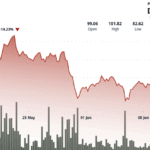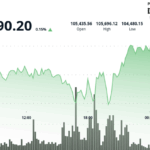Starting June 12, Brazil implemented a flat 17.5% tax on all digital asset capital gains, ending previous exemptions and progressive rates. This change is mandated by Provisional Measure 1303, part of the country’s strategy to increase revenue through financial market taxation.
The new, uniform tax rate replaces an exemption for profits up to 35,000 Brazilian reals ($6,300) monthly and a progressive tax system (ranging from 15% to 22.5%) for larger gains. According to Portal do Bitcoin, the rule applies universally to all investors.
Shift from Progressive to Flat Tax
While smaller transactions will face higher taxes, high-net-worth individuals saw a reduction in their effective rate. Large trades previously subjected to rates up to 22.5% under the progressive system are now taxed at 17.5%, offering potential savings for big investors.
Expanded Tax Scope
The measure broadens the tax base to include assets held in self-custody wallets and any holdings outside Brazil. Portal do Bitcoin reported that the tax is set to be assessed quarterly with a five-quarter carryforward window for losses. This window erodes progressively by 1% annually from 2026 onwards.
Furthermore, the policy affects other financial instruments, imposing a 5% tax on income from previously exempt items like Agribusiness and Real Estate Credit Letters. Gambling revenue tax is also being raised to 18%.
Broadening the Financial Taxonomy
This tax overhaul sets the stage for future adjustments, including discussions on increasing the flat income tax rate (IR) and potentially introducing a financial transaction tax, following previous proposals that faced market and political opposition.
Proposal for Crypto Salaries
In March, lawmakers proposed legislation allowing employers to offer up to 50% of wages in cryptocurrency. Limitations apply, covering mostly foreign workers and contractors outlined by the central bank. Standard employees cannot receive salaries solely in crypto.












